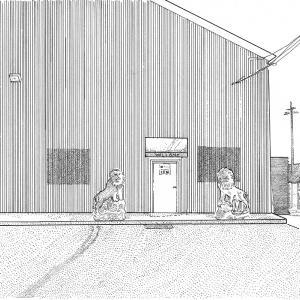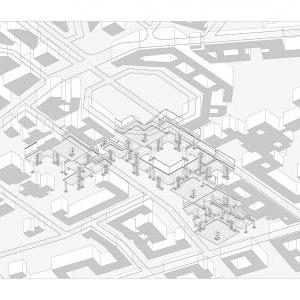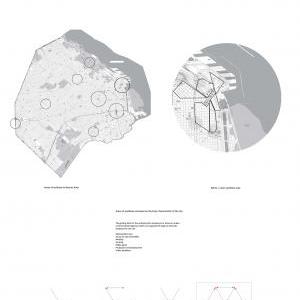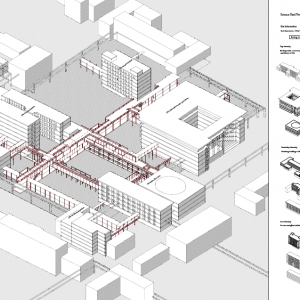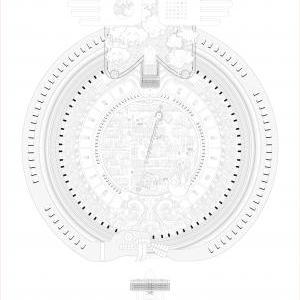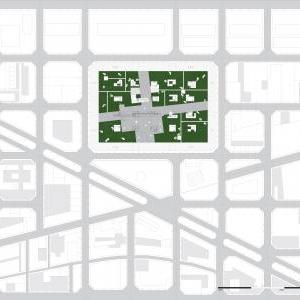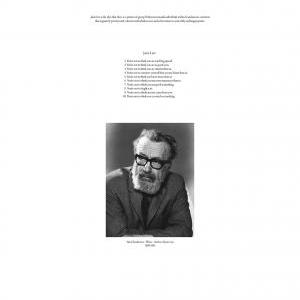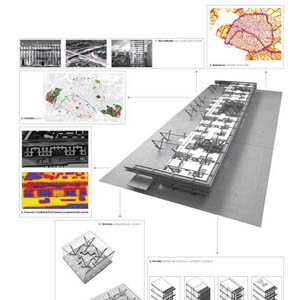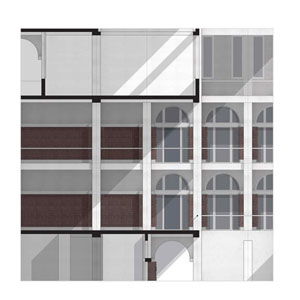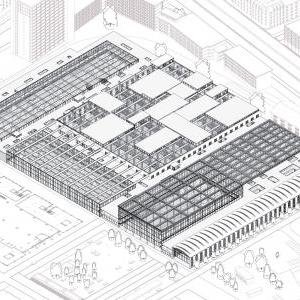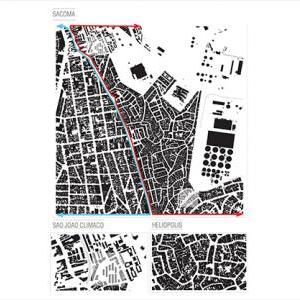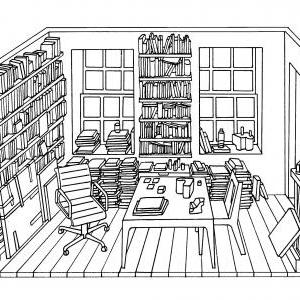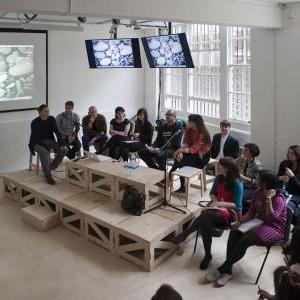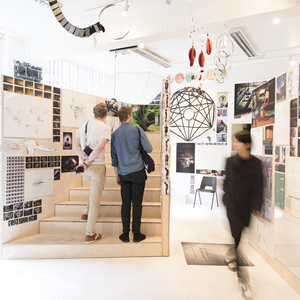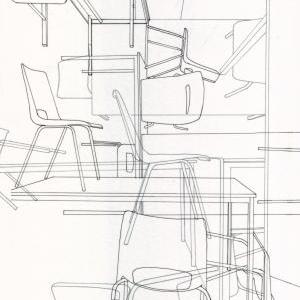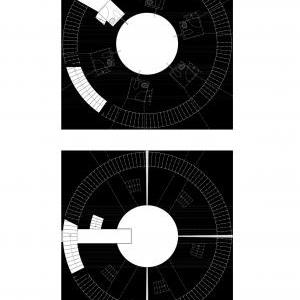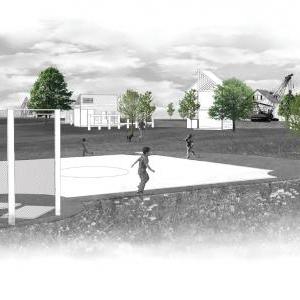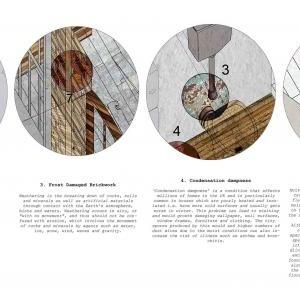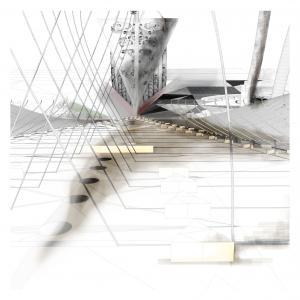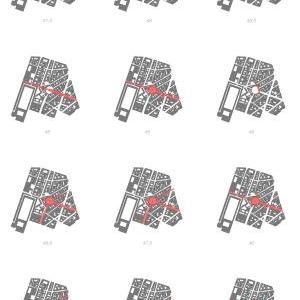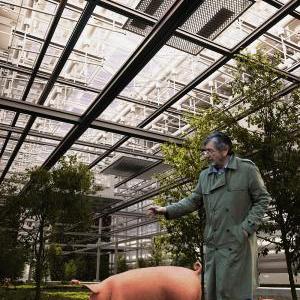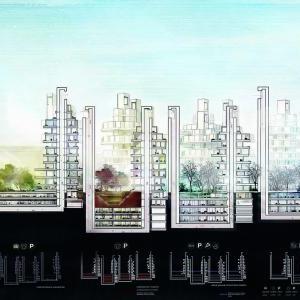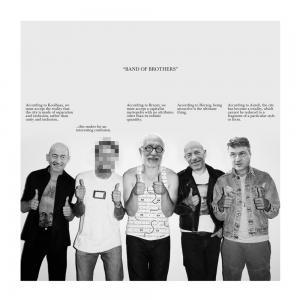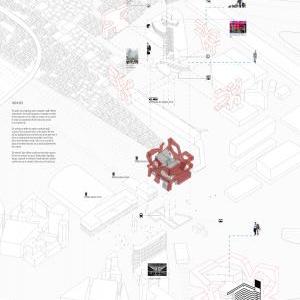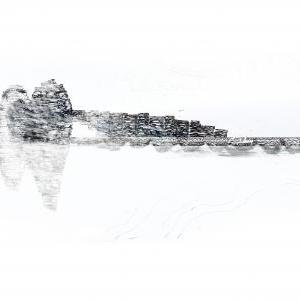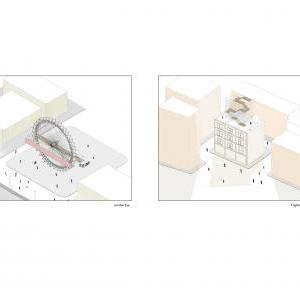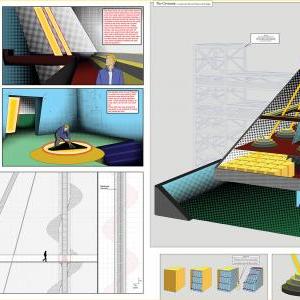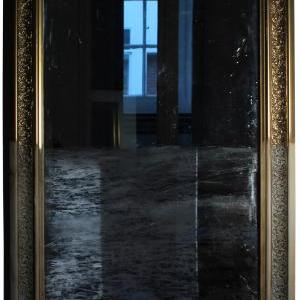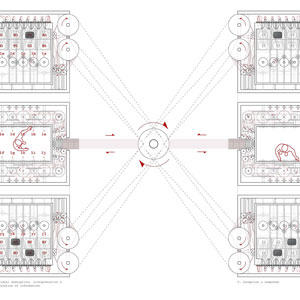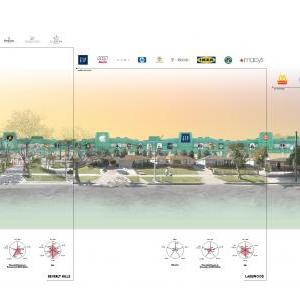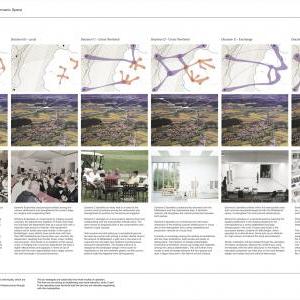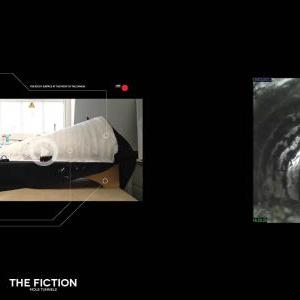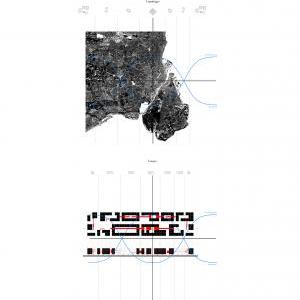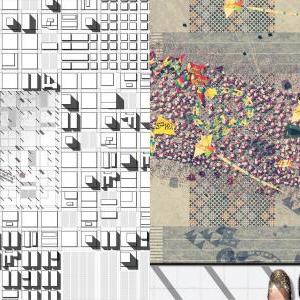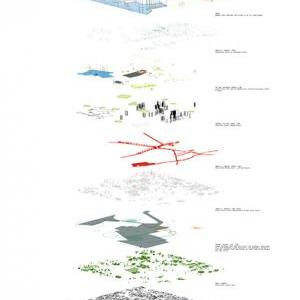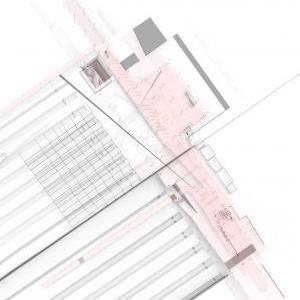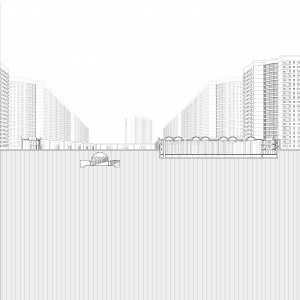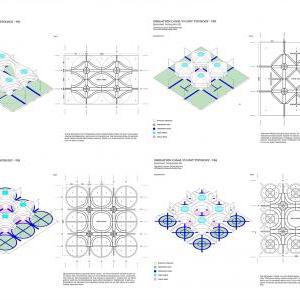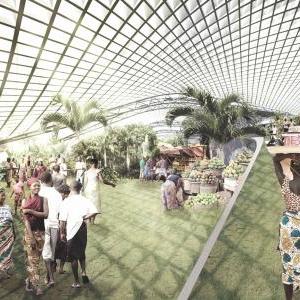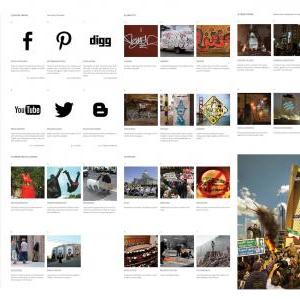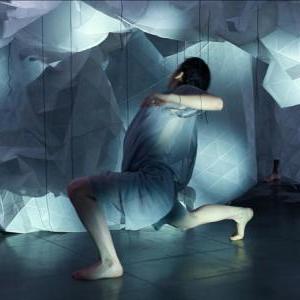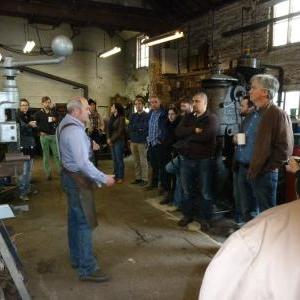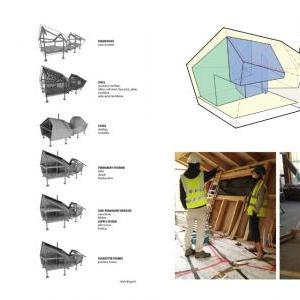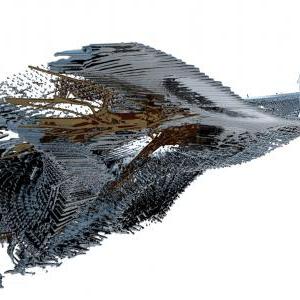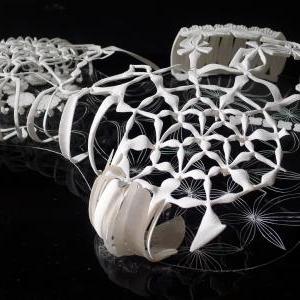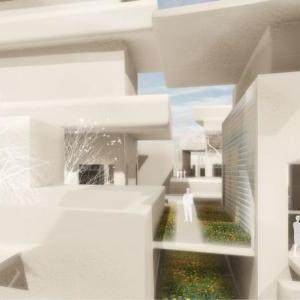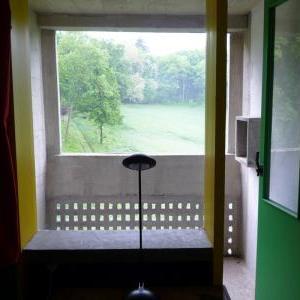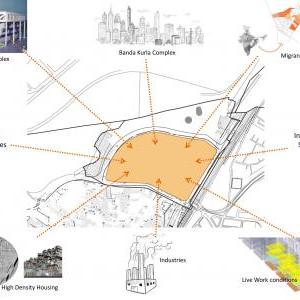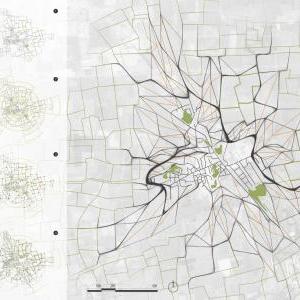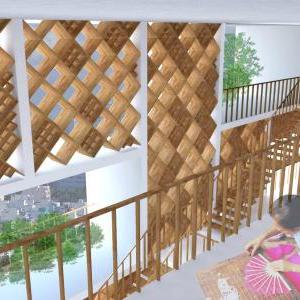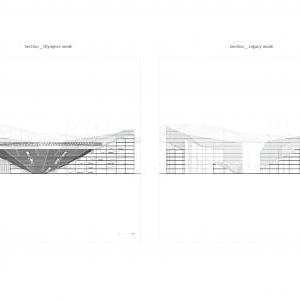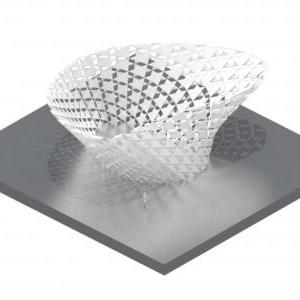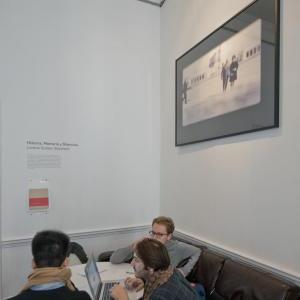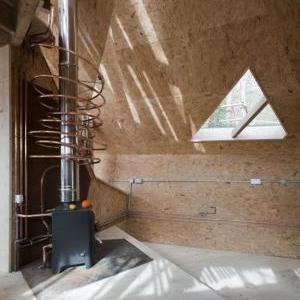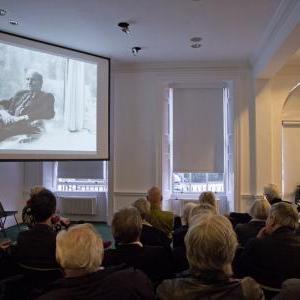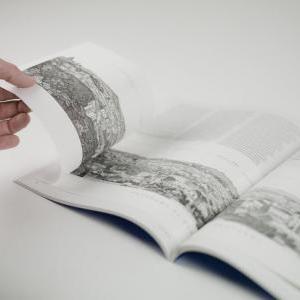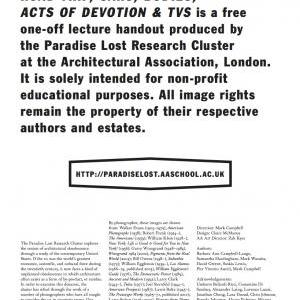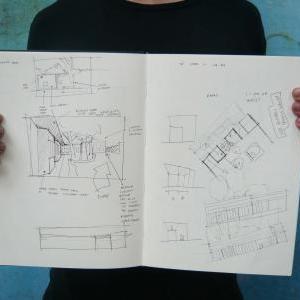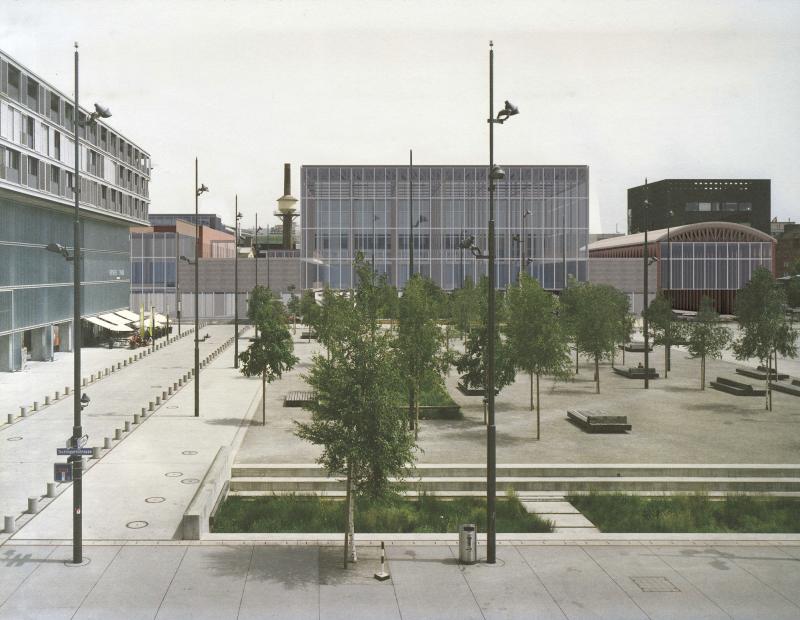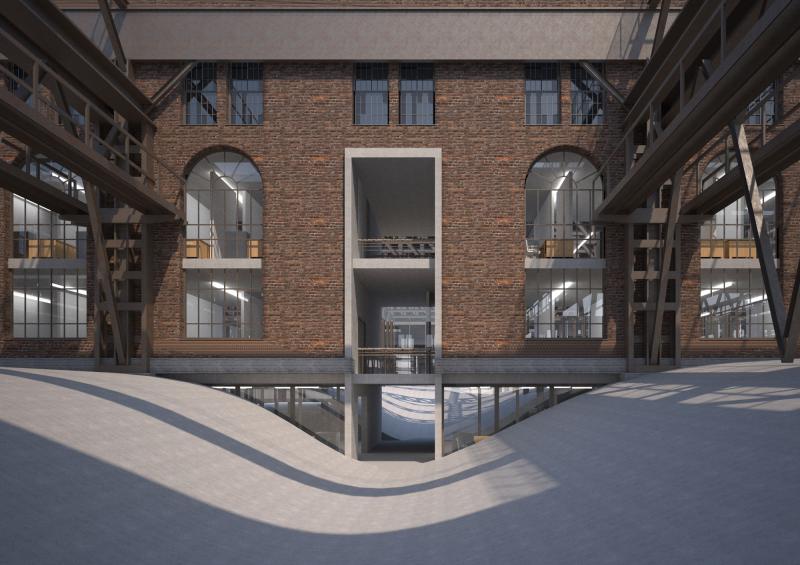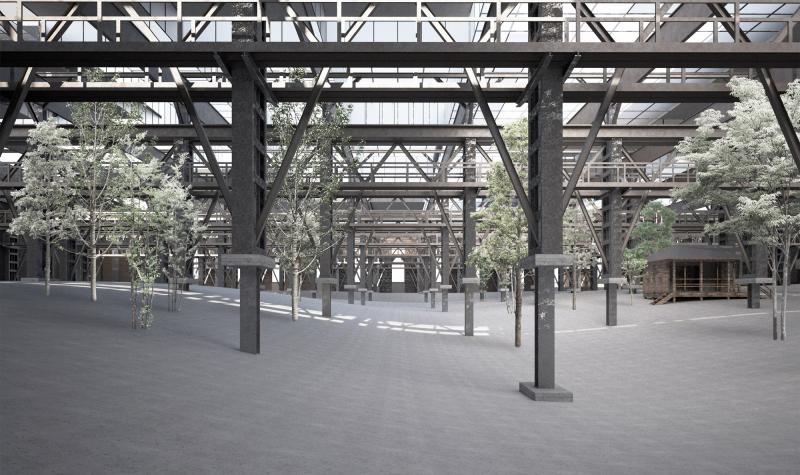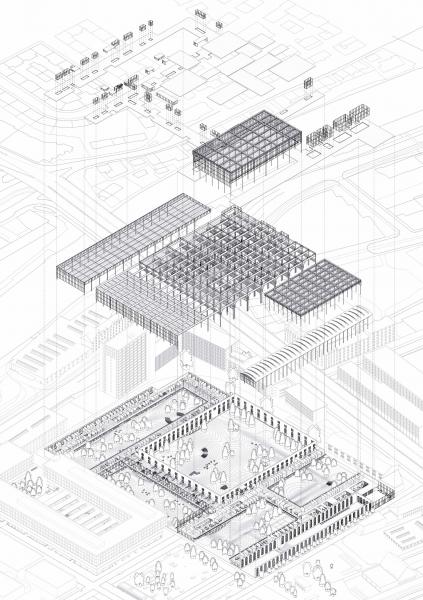Diploma 8’s recurrent agenda of the Corporate Domain has always served as a device to approach architecture as a function of the city. The unit attempts to participate in the greater discourse of architecture as a language and maintains that such a pursuit can, and perhaps should, most urgently be reified by the built form. Adopting architectural theses on the structures of typology, complexity and concepts of form, the unit integrated what it considers the dominant constituent of the contemporary city: the Corporate Domain. Whilst initial research focused on the development of postwar corporate precedents, student projects dealt mostly with speculative proposals that questioned and problematised the current condition of the city, and an unstable and evolving notion of ‘corporation’.
With a body of projects developed under the same agenda during the preceding two years, current students were in a position to both exercise the brief and critically redefine some of its inherent assumptions. Beyond the unit’s tendency of understanding the Corporate Domain as an element or protagonist of architecture and the city, current projects affirmed the value of assaying such architecture as a complex series of relationships that are products and components of larger processes. Though fundamentally inclusive of social and cultural relationships, the primary connection between student arguments and their projects was placed at the level of form. Projects sought to challenge the idea of architectural form only as a process, in favour of a notion of architecture as a practice aimed at a discourse. This year’s student projects offered a brief yet incisive argument for a more descriptive architectural enquiry.
Unit Master
Eugene Han
Visiting Jurors
Pier Vittorio Aureli
Andy Bow
Barbara-Ann Campbell-Lange
Javier Castañón
Ryan Dillon
Oliver Domeisen
Shin Egashira
Maria Fedorchenko
Francesca Hughes
Sam Jacoby
Tobias Klein
Marina Lathouri
John Palmesino
Theodore Spyropoulos
Carlos Villanueva Brandt
Thomas Weaver
Michael Weinstock
Andrew Yau
Alumni Contributors
Hussam Dakkak
Nora Nilsen
Beom Kwan Kim
Sakiko Watanabe
Gustav Düsing
Fung Tsui
Inverting the industrial block in Zurich can preserve the industrial construction of the city.
My project concerns with how corporate architecture can reclaim relevance in the dialectic between architectural form and the complexity of the city. Its ambition is the redefinition of the suburban corporate campus model within a fragmented post- industrial urban condition in the in Zürich, Switzerland.
Through the inversion of industrial building type, the financial services corporation challenges the social responsibilities from the government to the private sector, this corporate model becomes an indirect substitute to reclaim the social needs and collective public space as well as preserves the abandoned factories in the mono-functional production environment. These existing abandoned factories programmatically reverse the production space into leisure consumption space while it physically becomes inside-out arcades, atriums, pastoral landscape.
